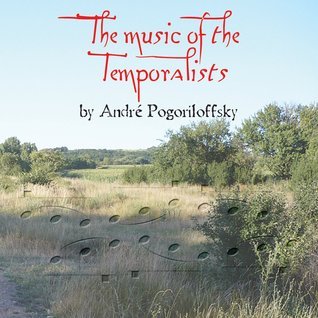What do you think?
Rate this book


214 pages, Kindle Edition
First published November 28, 2011
Jean-Phillipe pointed out to me that a whakerbaleenist can verticalize only some of the pulsatory structures that two interpreters usually are able to.
I have noticed that for temporal modes from the IOI 400-550 ms range interpreters pay more care for the sonorous marking of the prosodical relationships.
I must call the pharmacy and tell them that I take the whole week off. In just a few days I managed to make my wife believe that I am impotent and frustrated--while in reality I feel like flying from one flower to another, like a happy bumblebee.